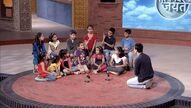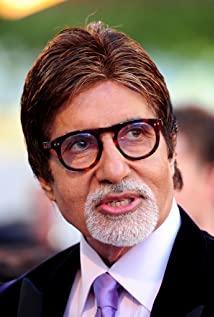The Chinese are very good at giving nicknames to people around them, but they are usually derogatory. The countries adjacent to us will basically have specific names, which are mostly not for good intentions. Japanese devils, Korean sticks, and Russian Maozi have all been disturbed in history. The self-esteem mentality is the driving force that sustains the dissemination of discriminatory language. Demeaning others can bring temporary happiness, but it also prevents us from seeing the gap in reality.
When it comes to India, the easiest thing to think of is the name India Asan. When it comes to the living conditions of neighboring countries, the prevailing beliefs are: a large population, a mess, and serious religious problems. Otherwise, it's Indian song and dance movies. In our eyes, it seems that the Indian subcontinent is a backward region that has nothing to do with us. For example, we will push crime and poverty to the backward areas, and then leave the relationship with the "backward".
If no one reminded me to look at the map, I would not have known that Afghanistan is so close to China. If I don’t learn more, my knowledge of India is limited to this. We are often deceived by propaganda, in ways that we can't detect.
The theme of the first episode of the show is infanticide. The serious phenomenon of patriarchy has led to the killing of unformed babies in the abdomen, and even children who have already been born. The investigation in the film shows that people think this phenomenon only exists in backward and poor rural areas, but the fact is that the probability of occurrence is higher in big cities. Your neighbor colleague may be a murderer of a baby. No one knows, or tacit, it's creepy. I can't help thinking that there is also a distance between cognition and reality in our country, and what you believe prevents you from knowing what the world really looks like.
Some of them have lost their loved ones, some have been assaulted, and some are seriously ill... They all walked to the stage to tell their experiences, undoubtedly publicly spreading salt on their wounds. But they know that it is a social problem, and hope that the obstacle will be eliminated so that no one will suffer the same. In their tearful eyes, I saw a fighter-like soul.
The social news that broke out a while ago was shocking, because people in the past could not hear it, or pretended not to hear it. Each issue of the program talks about a wide range of topics, and it is naturally the sadness of Indian society. You say he is full of holes or tattered. However, NGOs that focus on this field can always be found, and a group of people are working hard to improve a small detail in the world. People have the opportunity to see the abscesses in society before they can disinfect their wounds. In addition, the Indians will admire the civilian heroes in reality and take the inheritance of the will of the sages as their own duty. It sounds absurd to make a movie for people who promote sanitary napkins, but it is someone who really improves people's lives.
In the last episode, there was an old man whose son died and couldn't find the corpse. Since then, all the unknown corpses have been buried. Hindus prayed for cremation, and Muslims helped him in burial, eliminating religious prejudice. There are many moving stories...
Somehow, I feel that Indian society is full of hope, and such a powerful show cannot be filmed in many countries.
View more about Satyamev Jayate reviews











